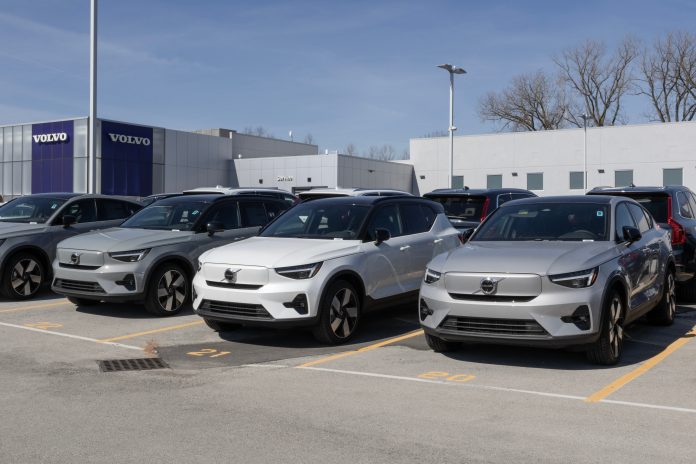Swedish automaker Volvo Cars has revised its ambitious plan to go fully electric by 2030, announcing that it will continue to offer hybrid models in its lineup beyond that deadline. This decision reflects the evolving market demand and challenges surrounding electric vehicle (EV) adoption, such as the lack of affordable models and the slow expansion of charging infrastructure. Volvo now expects that by 2030, between 90% and 100% of its sales will come from electric or plug-in hybrid vehicles, with up to 10% being mild hybrids, which use electric power to supplement combustion engines.
Despite the adjustment, Volvo maintains that plug-in hybrids will be crucial to its profit growth. The company plans to update its hybrid XC90 and expects to deliver the first updated SUVs by the end of the year.
Volvo, majority-owned by China’s Geely, had previously been a strong advocate for full electrification, producing flagship electric SUVs like the EX90 and EX30. However, with the increasing consumer demand for hybrid vehicles, Volvo has joined other automakers, such as Toyota and Renault, in acknowledging that hybrids remain attractive to buyers due to concerns about EV range and affordability.
Volvo’s CEO, Jim Rowan, reiterated the company’s commitment to an electric future, stating, “We are resolute in our belief that our future is electric,” but acknowledged that the transition will vary by market. By 2025, the company expects electrified vehicles, including hybrids and full EVs, to represent 50% to 60% of sales.
In response to shifting market conditions, Volvo is also calling for stronger governmental support to accelerate the adoption of electric vehicles. Meanwhile, the company continues to develop new electric models, including the upcoming ES90 sedan, which was previewed during an event showcasing the EX90. The pivot toward hybrids highlights the complexity of the global push for greener automotive solutions as Volvo and other manufacturers balance innovation with practicality.



